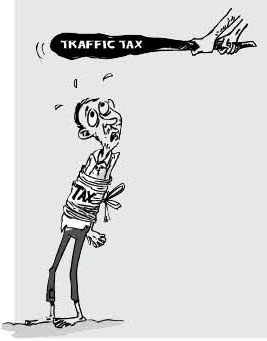Reply To:
Name - Reply Comment
 With traffic snarls sounding alarm horns louder than ever before, the National Government has announced long and short term plans to ease the congestion. In a short term project, two elevated highways will be built linking Colombo city with Kelaniya and Rajagiriya. According to the Ministry of Highways, one of these elevated highways will cover 6.9 km and link the Kelaniya bridge with Rajagiriya. The second highway covering 5.8 km will connect the Kelaniya bridge with the Colombo Port.
With traffic snarls sounding alarm horns louder than ever before, the National Government has announced long and short term plans to ease the congestion. In a short term project, two elevated highways will be built linking Colombo city with Kelaniya and Rajagiriya. According to the Ministry of Highways, one of these elevated highways will cover 6.9 km and link the Kelaniya bridge with Rajagiriya. The second highway covering 5.8 km will connect the Kelaniya bridge with the Colombo Port.
Elevated highways are to link Colombo with key suburban towns, according to a three-year project being worked out by the Ministry of Megapolis and the Ministry of Highways. Megapolis Ministry Secretary Nihal Rupasinghe said a 21.6 kilometre-long elevated highway would be built from Athurugiriya to Colombo Fort via Malabe, Battaramulla, Rajagiriya, Dematagoda and Orugodawatta. The elevated highway will have access from Malabe, the Koswatta junction, Rajagiriya, Madinnagoda and Kolonnawa. This will be in addition to access from a point close to the Fort railway station, the Port City, the Kelani bridge and Dematagoda. Within three years the highway will be extended to Duplication road.
While these super highway projects are on the road map, the Lanka Private Bus Owners’ Association (LPBOA) appears to be heading for a major head-on collusion with the government and the people mainly in the Western and Central Provinces. Public or private bus operations are essentially utility services for the people. They cannot and must not be allowed to become big profit making businesses. If public transport services, a state monopoly till 1977 were bad, private transport services have gradually become worse with most people being angry, sick and tired of what private bus operators are doing or failing to do.
It is in the face of such public wrath, that the LPBOA leader Gemunu Wijeratne dared to announce on Wednesday that the detested private operators would impose a traffic tax on innocent people who are already burdened with VAT and what not through indirect taxations. Mr. Wijeratne told a news conference that from July 1 private operators would increase their fares in the Western and Central Provinces because of excess fuel burnt as a result of long delays in heavy traffic congestions.
Breaking rules and procedures as private bus operators often do, he said the LPBOA had informed the government of its decision to impose a traffic tax or increase fares. How dare they? He crashed in further on the crisis by warning the government that if it tried to stop the increase in fares the private bus operators would go on strike. This is lawless and reckless behaviour similar to what happened during the worst years of the former regime. The National Government must not and cannot tolerate such threats from those who are supposed to serve the people.
The traffic snarl crisis, ironically began when the newly elected government in January 2015 provided what it thought would be a bonanza for the people by slashing the prices of petrol, diesel oil and kerosene by substantial amounts. Instead the blessing turned into a curse with some 600,000 vehicles being imported last year. This led to the worst ever traffic jam with millions of litres of fuel being wasted, precious time also wasted on the road and worst of all the excessive emission of carbon dioxide to pollute the environment.
In the long term the lasting solution is an effective and people friendly public transport service. Most people do not want or cannot afford to go in their private vehicles but they have no option because of a multitude of problems in public and private bus operations, the latest being the growing number of cases of sexual harassment of girls and women. Government leaders say that as part of the solution, President Maithripala Sirisena during his visit to Japan last week, worked out a deal with a Japanese company for a super express monorail service on the highways. The government also needs to give priority to a radical transformation of the Sri Lanka Central Transport Board, so that, as most people do in the west, Sri Lankans also would prefer the comfort of a good public transport service.